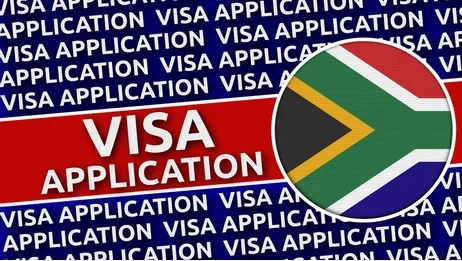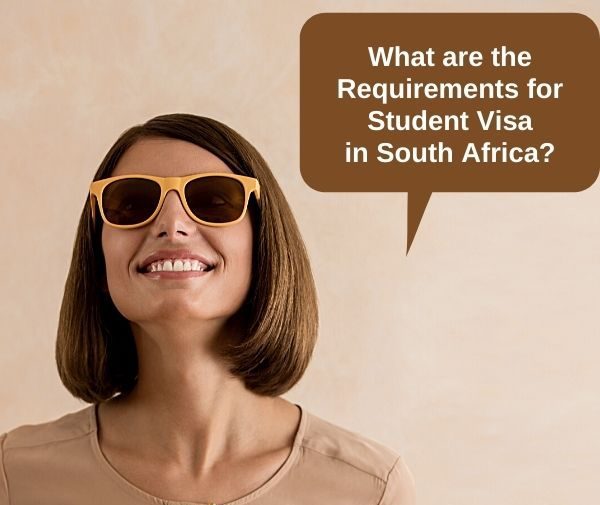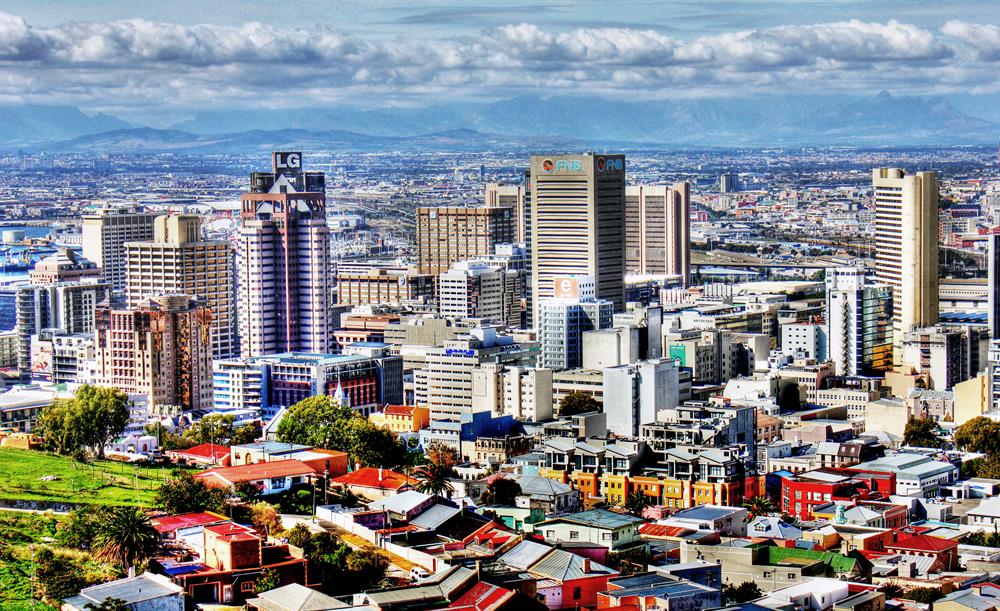If you wish to work in South Africa, you may apply for one of several types of work visas that would allow you to legally work and remain in the country. There are numerous sorts of temporary work visas available if you want to work in South Africa. General employment, inter-company transfer, highly skilled migrant, or business entrepreneur are examples.
South Africa provides many job prospects for skilled employees in various areas due to its developing economy and manufacturing sector, and foreigners are increasingly finding work in South Africa. However, there are fewer job prospects in South Africa for unskilled or semi-skilled workers. Thus, the government encourages qualified persons to apply for employment in occupations where the country is scarce; the most recent list of vital talents includes about 35,000 vacancies in 53 different categories. Work visas in South Africa are listed here, along with the requirements and how to apply
In South Africa, there is also a focus on luring entrepreneurs, particularly where this would result in:
- Capital is brought into South Africa from overseas; things are manufactured for export, and South Africans are employed.
- The many forms of South African work visas are determined by the applicant’s working position.
Who Needs a South African Work Visa?
Your temporary residency visa is your South African work visa. Anyone who wants to work in South Africa but is not a citizen or a permanent resident often needs to apply for a work visa. Work visas are valid for either a set number of years or as long as your job contract lasts. Visa extensions are generally feasible. Applying for a work visa is advised if:
- you wish to take up temporary employment in South Africa, with or without reward.
- your plans include setting up or running a business temporarily in South Africa.
- your company abroad wants to transfer you temporarily to a branch or affiliate of the company in South Africa.
- you’re recruited to work temporarily in South Africa as an employee or consultant for the government in terms of an intergovernmental agreement.
- you wish to visit a company in South Africa in which you have more than 25 per cent control share.
- you’re planning to acquire fixed assets in South Africa for speculation or rent.
- you wish to visit South Africa to produce a feature film, documentary or TV commercial.
- you’re a priest or religious worker volunteering to work temporarily at a religious institution in South Africa.
- you’re an au pair intending to work temporarily in South Africa as part of cultural exchange.
Types of South African Work Visas
Skilled Workers Visa (Highly Skilled Migrants):
The South African government recognizes some abilities as outstanding. A person with such abilities and/or qualifications is eligible to apply for a Critical Skills Work Visa. This visa does not require the applicant to have a job at the time of application. Through the DHA’s critical skills list, the statute stipulates which talents qualify as critical. An appropriate South African authority (for example, SAQA) must confirm the applicant’s writing skills; this guarantees the candidate is qualified for the critical field of work.
A letter from the relevant professional body is sometimes required as well. If you have a doctorate and have written articles or are an expert in a specialized sector, this can help your application. The Critical Skills Work Visa is valid for a maximum of five years and can be extended. However, as illustrated below, permanent residence can be obtained immediately after obtaining the Critical Skills Work Visa.
General Work Visa:
The most prevalent type of visa is the General Work Visa. To secure this visa, the hiring employer must demonstrate that the position cannot be performed by a South African. This usually implies that they must first promote the post in the local media to guarantee that jobs are not denied to South African natives.
Second, proof of the applicant’s qualifications and/or experience must be provided. The South African Qualifications Authority must verify their credentials (SAQA). Applicants must also receive Department of Labor certification confirming, among other things, that their income and benefits are comparable to those paid to South African nationals in comparable positions.
Applicants must sign a permanent work contract and submit it with their application to the Department of Home Affairs (DHA) or their home country’s embassy, consulate, or diplomatic mission. Employers must be aware of the visas of their foreign employees; if an employee works illegally, the company is also liable and may face substantial fines from the DHA.
Corporate Visas:
A Corporate Visa is provided to an employing firm rather than an individual and allows that company to employ multiple foreign workers within a specific period. Individual Corporate Worker Certificates are issued to employees. This sort of visa is also extremely beneficial to a company because it allows the company to hire foreigners much faster and at a lower cost to the DHA.
Business Visas:
If you intend to relocate to South Africa to start a business or invest in an existing one, you must apply for a Business Visa. Applicants must commit significant funds and present a business strategy. All business visa applicants must request a letter of reference from the Department of Trade and Industry demonstrating the viability of their business and its contribution to South Africa’s national interest. Furthermore, you must demonstrate that:
- The business employs at least 60% South Africans;
- The proposed business is undesirable;
- The firm has the best prospect of success based on a detailed business plan, and the business is compliant with existing South African company law.
The DHA states, among other things, that you must submit Form BI-1738, as well as a certificate issued by a chartered accountant registered with the South African Institute of Chartered Accountants stating that you have a capital contribution and/or cash to the value of at least ZAR 5.0 million that originated outside South Africa.
Businesses that benefit the nation, such as those in information and communication technology, apparel and textile manufacturing, chemicals and biotechnology, agro-processing, metals and mineral refining, automobile manufacturing, and tourism, among others, can lower this amount with a waiver. If you only want to stay temporarily, you should apply for a work visa; if you anticipate staying a while, you might also want to think about applying for a permanent residence permit.
Intra-company Transfer Visa (ICT):
People who work in international corporations frequently transfer between nations in today’s world. If you have been transferred to South Africa, you must apply for the Intra-Company Transfer visa. Before seeking to relocate to the South African branch, applicants must have worked for at least six months in the company’s foreign office. This visa is valid for four years and cannot be extended under the current immigration law. If an applicant has a valid ICT visa for two years (issued under the old act), he or she may apply for a two-year extension. Those years, however, do not count toward obtaining a permanent residency permit in South Africa.
Would You Like To Apply For This Jobs/Sponsorship?
Enter Your Email Address HERE & You Will Receive a Notification About Your Application. If it shows "Subscribed" CLICK HERE to follow on Telegram for updatesYou’ll require either a work visa or a business visa depending on whether you’re being transferred or simply seconded to your company’s branch. A work visa is required if you are temporarily transferred to a South African branch or affiliate and will be reported directly to, and on the payroll of, the local branch. If, on the other hand, your firm is seconding you to a South African branch or affiliate for a specified purpose and amount of time – and you will still report directly to, and be on the payroll of, the parent company abroad – you will not require a work visa. Instead, you should apply for a business visa in another country.
Changing Employer
It is important to note that the above work visas do not allow you to change employers. If you do intend to change employers, you can obtain information through the Visa Facilitation Centre (VFS) or the closest Department of Home Affairs office; your application will be subject to all of the criteria of your initial application.
Where to Apply For a South African Work Visa
Foreign nationals who wish to enter South Africa must apply for the necessary visa at:
- the South African embassy, consulate, or diplomatic representative in the nation of their residence or citizenship;
- if none is available in your country of residence, at a South African diplomatic representative in a neighbouring or close-by foreign nation; or, if you are already in South Africa,
- at the closest Visa Facilitation Centre (VFS). You can either obtain application forms online or in person from the relevant authority in your nation.
Visit the DHA website for further information on the requirements as well as the complete list of South African resident permits.
Extension of Visa Duration
To extend your visa, you must apply at least 90 days before it expires at any Visa Facilitation Centre (VFS) office in South Africa. You can also fill out the application form online. When applying for an extension of a temporary residence visa, a cost is required; the fee for the extension is the same as the fee for the first application.
Permanent Residency Permit in South Africa:
If you have a work visa, you can apply for permanent residence. Anyone who has held a General Work Visa for the last five years is eligible to apply for a Permanent Residence permit. If you have a Critical Skills Work Visa and five years of experience in your field, you can apply right away. Essential skills applicants should have a permanent job contract or an offer of permanent employment. Applications for residency permits are processed through the Department of Home Affairs (DHA) headquarters. South African visas for relatives
If you obtain a work visa for South Africa or a permanent residence permit, your spouse and children can also receive residence visas once they meet the set requirements. They may also wish to apply for work or study visas themselves, either before moving or once they are in South Africa.
To apply, you will need to show proof of your relationship (marriage or birth certificates) as well as evidence of your partner’s residence status in South Africa. Read more in Expatica’s guide to South African visas and permits.
Finding a Job in South Africa
Before moving to South Africa, applicants seeking a work visa should visit the country and attend many interviews. Although it is an additional cost, it can give various benefits. Work visas are not as complicated as they appear. If a prospective employee has a job offer but is unable to accept it due to visa issues, an immigration consultant or lawyer can phone or visit with them to calm any concerns a company may have.
Some businesses may be concerned with the short term, preferring to hire someone who can start within a month or who can meet with them right away. When interacting with a potential employer, it is critical to be patient and explain the specifics of one’s desired visa.
In the correct circumstances, organizations looking for expertise and contemplating hiring foreigners have the option. These include not being able to identify a suitable South African incumbent for the post, requiring crucial expertise that is not commonly available in South Africa, or simply requiring someone from a multi-national firm’s foreign office or branch.
South Africa has modified various regulations regarding work visa choices, and while the process remains fairly difficult, there is now a distinct possibility of hiring a foreigner if a company wishes to do so.





